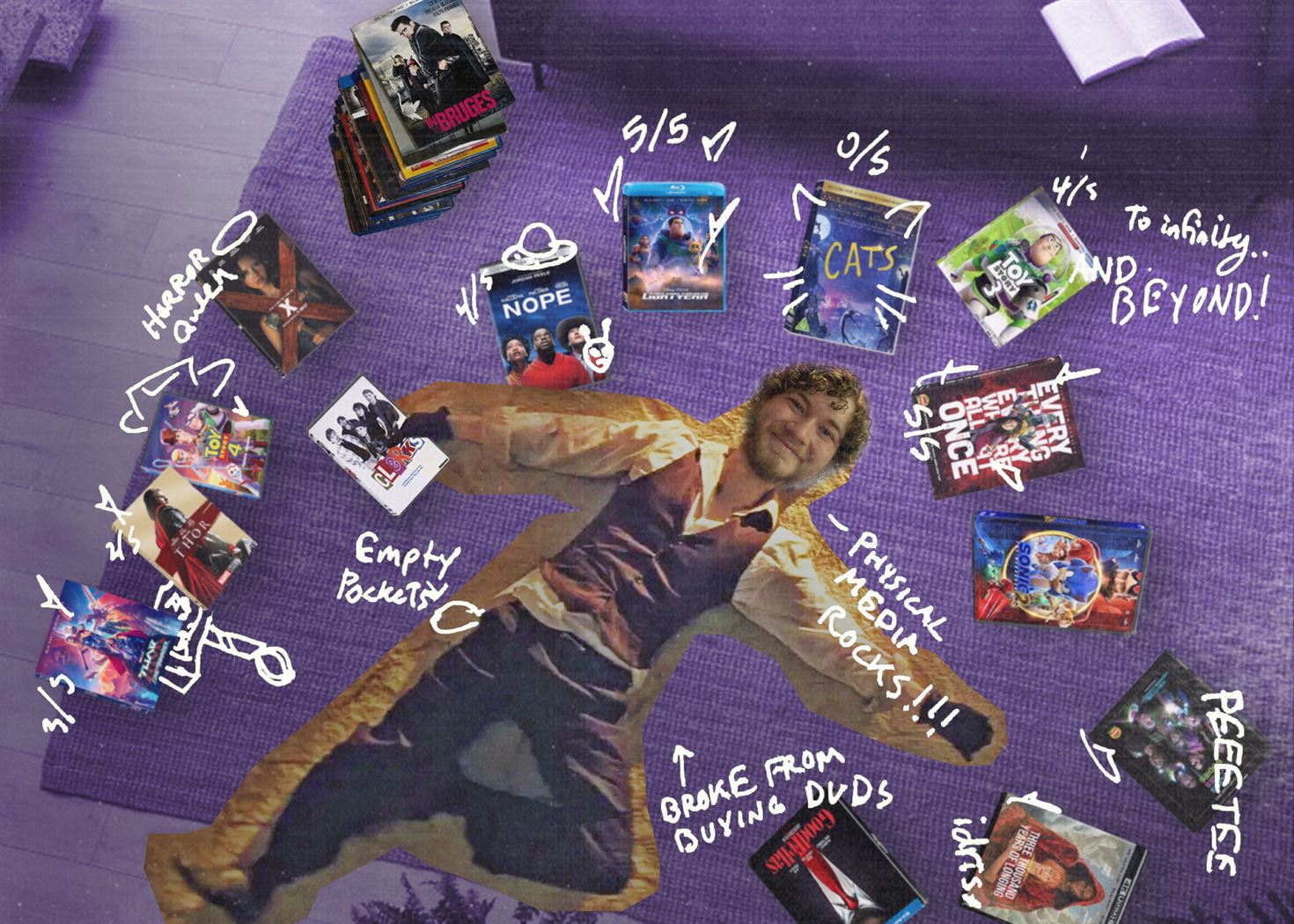Over the past 20 years, the way we consume media has entirely changed.
For the most part, the days of DVDs and CDs are over with the rise of streaming services like Netflix and Spotify. However, despite the rapidly changing landscape, physical media formats are still far more important than many people will ever realize, coming in the form of media preservation.
Warner Bros. Discovery (WBD) has made headlines as of late with their high-profile cancellations of HBO Max projects in development such as “Batgirl” and “Scoob!: Holiday Haunt”, but what slipped under the radar is the original films and TV shows that had already been on the service for quite some time being removed, such as Seth Rogen’s dual-role comedy “An American Pickle” or the pandemic heist comedy “Locked Down”.
These films are now almost inaccessible because when it comes to streaming, you own NOTHING.
You pay a fee every month for a license and little else. If a streaming service decides to pull something, odds are it could be gone forever, like Olan Rogers’ “Final Space,” an animated comedy series that ran for three seasons which has now been written off by WBD, and as such cannot legally be distributed anymore. “Final Space,” functionally, only exists upon the physical DVD release.
This is why physical media is still so important. It’s the only way to truly preserve art when the corporations that own it refuse to.
Films like “Dogma,” which are personally owned by Harvey Weinstein, will never see the light of day on streaming unless Weinstein relinquishes the rights or dies, and as such, the only way to view that film is if you own a physical copy.
This goes for music as well. Albums like De La Soul’s thrilling debut “Three Feet High and Rising” are nowhere to be found on services like Apple Music or Spotify, and famously, Taylor Swift once pulled “1989” and, later, her entire discography from Spotify due to her feeling artists weren’t compensated fairly. And, unfortunately, I feel obligated to mention that Kanye West released his album “Donda 2” exclusively through his Stem Player to combat the same issues.
Physical media also simply offers more than streaming.
In addition to an array of DVDs or LPs looking gorgeous when they’re lined up on a shelf, physical releases simply offer more content, in the form of special features on DVDs and liner notes on CD and vinyl releases, that go more in-depth on the creation of your favorite movies and music than Spotify or Disney+ could ever hope to. And on the technical side, streaming is far more compressed, and the version of a movie or a song on a disc will be of higher, more consistent quality than on a streaming service.
This is all not to say that streaming is inherently awful- truth be told, it’s one of the greatest inventions of the 21st century. In many ways, these art forms have now become democratized, with pieces that had been previously overlooked now getting a second chance in Netflix’s Top 10.
Streaming also gives artists more flexibility to fix things that slip through the cracks, such as Lizzo recently tweaking the lyrics on her song “Grrrlz” after discovering one of the terms she used is actually an ableist slur, or Elliot Page’s deadname being removed and replaced in the opening credits of “The Umbrella Academy.”
This same flexibility, however, is also used for the censorship of older films so corporations can avoid accountability. “Toy Story 2” was quietly censored upon the launch of Disney+, removing a joke about sexual misconduct from the blooper reel during the credits.
The joke was tasteless, even in 1999, and is made even worse with the knowledge of director John Lasseter’s own misconduct, but it’s not right to just wipe it off the face of the earth without acknowledging the changing times and atoning for the sins, rather than sweeping them under the carpet.
Overall, streaming will always be an incredible way to discover new art, but if you truly love that art, you’d better get your hands on a physical copy before an executive decides you can’t anymore.



